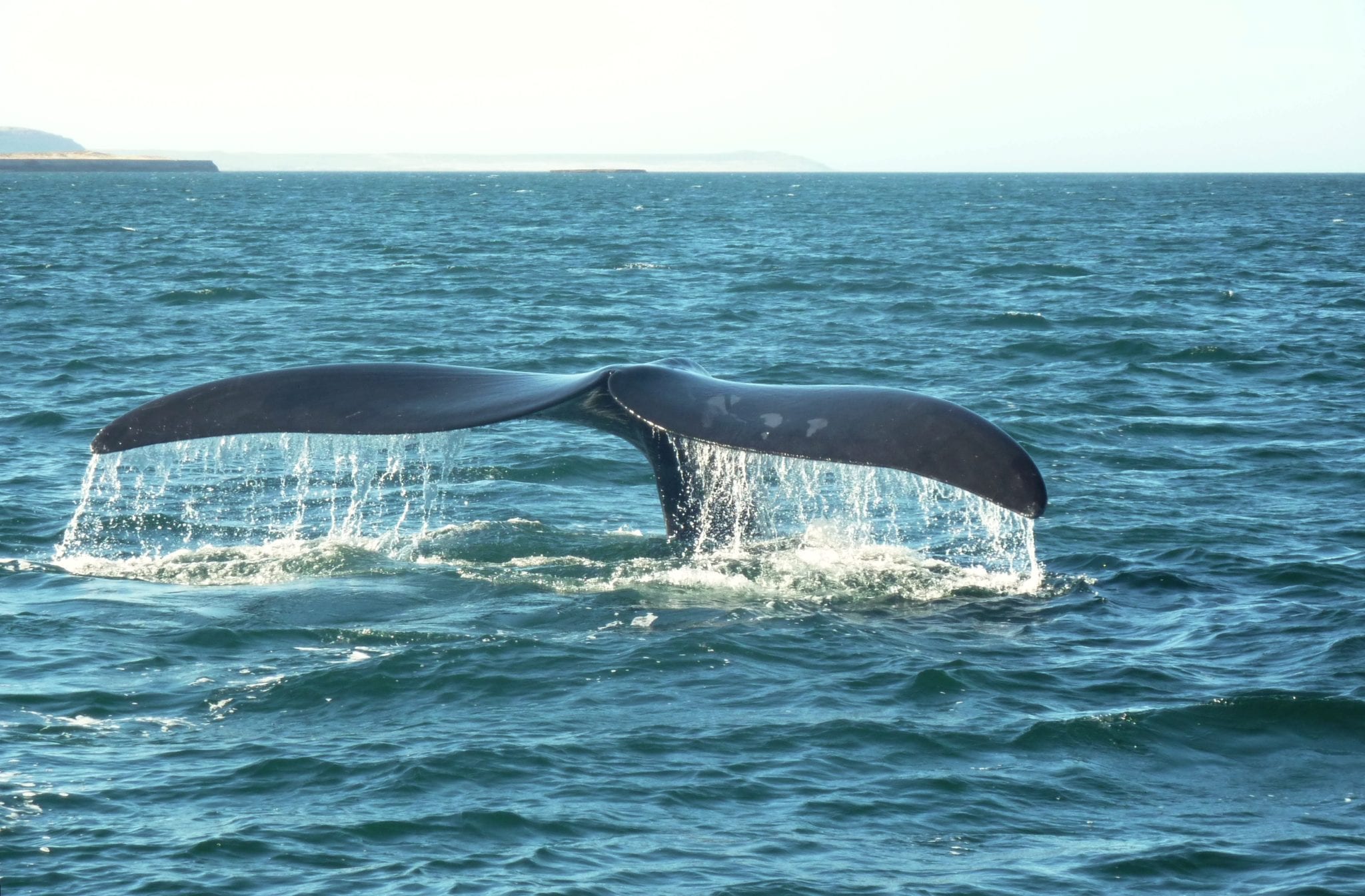
RAMONA DELANEY’S 93-year-old grandmother died peacefully on a Tuesday in April. The funeral service was held on Friday. On Saturday, Ramona, with husband Matt Delaney and 14-year-old daughter Katrina, purchased an over-sand permit for their jeep and drove out through the sand dunes of Race Point at the northernmost tip of Cape Cod.
A ripple in the seawater quite close-by drew their attention. Suddenly, an enormous black head rose up. Gazing their way was a huge eye the size of a softball. The right whale wheeled forward and disappeared beneath the waves. Later, a right whale breached. Its entire body came out of the water and, rotating, it splashed down on its backside sending up great curtains of spray. The right whale breached many times over the course of about an hour.
The Delaney family all felt this incredible, yet intimate, encounter was a sign that Ramona’s grandmother was okay. They found the solace they were seeking when the spirit of life shined brightly in a majestic right whale on that day, April 24, 2004.
The Delaney family has celebrated April 24 as whale day ever since and asked that this special day become a time when everyone in the Commonwealth can cherish North Atlantic right whales. The Delaney’s state representative, Josh Cutler, has filed a bill to create Massachusetts Right Whale Day April 24 (H.3869).
A right whale day has been a long time coming. About 50 years ago, Bill Watkins picnicked with his family on a Provincetown shore in April when a right whale swam along the shore with the top of its head above the sea surface furrowing a shoal of Calanus copepods. With bottom lip opened out to reveal baleen plates hanging from the upper jaw, Watkins, a senior research specialist in marine mammal bioacoustics at the Woods Hole Oceanographic Institutes, described the click-clack sound of plates bumping into each other. His photo was the first published image of a live right whale displaying baleen plates.Next, undersea photographer Bill Curtsinger had the nerve to swim with a right whale. His astounding photographs were published in a book aptly titled Mind in the Waters. We were captivated by the nonjudgmental, softball-sized eye looking out at us. Never before had we seen the grace of a whale in its element beneath the waves. All other images of whales were bloated carcasses on the shore, bloodied distended bodies on a ship’s slipway, or the violent thrashing of a sperm whale.
In 1974, the belief was held in Provincetown that you would know it was April 15 when the right whales appeared. The timing of their arrival was more dependable than the first call of the redwing blackbird. That year, a group of people that included science teachers convinced Al Avellar to put his boat in the water early. They set out on April 15 and found many right whales. The next year, Captain Avellar commenced the commercial whale watch business with Stormy Mayo on the bridge sighting whales.
Whale watching has accomplished more than informing and inspiring a citizenry concerned with the welfare of whales for many decades. By carefully mapping whale sightings for 30-plus years, it became clear that whales fed in a figure-eight shape or dumbbell north-south pattern on Stellwagen Bank. Ship strikes would be greatly reduced if the Northwest channel to Boston was shifted and shortened to West across the narrowest portion of whale activity. The Coast Guard rerouted Boston’s main shipping channel for the love of right whales. The natural gas shipping company paid for the installation of listening buoys that transmitted underwater sounds to Cornell University for analysis. When right whale calls were heard, the buoy would signal for ships to slow down to 10 knots. Ships going through the Cape Cod Canal are also kept apprised of the locations of right whales in Massachusetts Bay.
Please speak to your state representative to support H.3869 if you would like to support an April 24 Massachusetts Right Whale Day. The more personal your relationship with whales, the more meaningful it will be for the Legislature to take this important action.Dr. Rob Moir is president & executive director of Massachusetts-based Ocean River Institute, a nonprofit providing expertise, services, resources, and information unavailable on a localized level to support efforts of environmental organizations. Please visit www.oceanriver.org for more information.
"right" - Google News
October 30, 2021 at 05:11AM
https://ift.tt/3GDcYNB
CommonWealth Magazine - CommonWealth magazine
"right" - Google News
https://ift.tt/32Okh02
Bagikan Berita Ini














0 Response to "CommonWealth Magazine - CommonWealth magazine"
Post a Comment